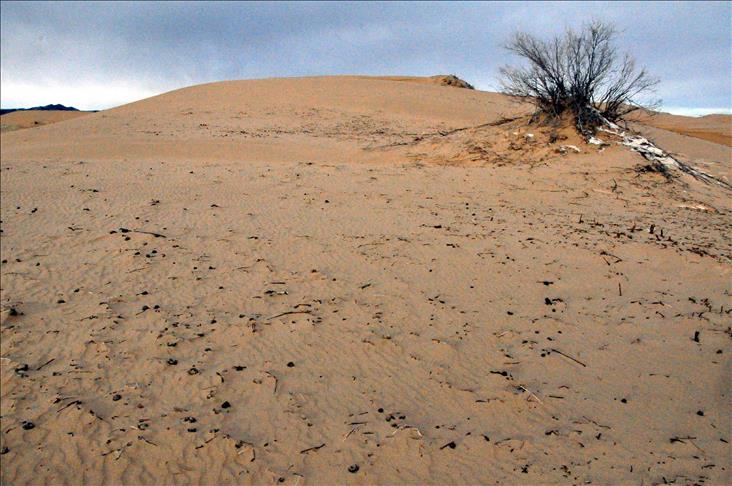
By Burcu Ozer
ISTANBUL
Occupancy rates of Istanbul's dams have dropped to critical levels due to lack of rainfall this year, prompting fears of drought and 'desertification' in Turkey's largest city.
Around 15 million people could be affected after the water level in many Istanbul dams fell to under 20 percent, according to Turkey's State Water Affairs body. Now experts are warning that the country has to conserve and re-use water to prevent problems in agriculture and energy generation.
Ali Uyumaz, a hydroelectric and river improvements expert at Istanbul Technical University, says the Marmara region and Istanbul have a limited number of water basins compared to regions in eastern and southern Turkey.
"The biggest issue is not the occupancy rate but to use water sources wisely" Uyumaz says.
"Turkey needs more water-efficient systems in households and factories. The country should also focus and introduce water-saving measures in each and every home."
At least 1,500 cubic kilometers of waste water are produced globally every year. Waste water can be reused productively for energy and irrigation, but is not generally recovered in Turkey.
Between September 2013 and February 2014, Turkey had low levels of rainfall which significantly harmed both agricultural and energy production.
The current decrease in the level of rainfall and snowfall across the country reduces water levels in hydroelectric power plants and is likely to create a decrease in electricity production in dams, Energy Minister Taner Yildiz said in February.
According to a March report from the Turkish Union of Agricultural Chambers, the production of wheat, which was harvested at record levels in 2013, is expected to fall 14 percent this year due to drought.
Stating that the using modern irrigation techniques is a key way to save water, Uyumaz says agricultural production will face more problems in the future and that there will be more water problems both in urban and arid areas in Turkey, stressing that the country needs better water management.
"If the current improper usage of water continues, this will be the leading cause of drought and desertification both in Istanbul and Turkey. That’s why water resources should be managed very carefully.
“We should make smart use of our natural resources; their importance has not been fully understood yet," he adds.
Tugba Evrim Maden, hydropolitics researcher at the Center For Middle Eastern Studies in Ankara, said water has an important role for the generation, extraction and cooling off of every form of energy.
"Likewise, there is need for energy for the generation, transmission and purification of water. The link between water and energy makes the security of both resources highly crucial."
Stating that the world population is about seven billion, Maden said "2.5 billion people are unable to reach electricity, 768 million people lack access to drinking water and 2.8 billion people live in the areas where water scarcity is felt intensively."
Maden claims that Turkey needs to see the creation of an alternative source for cooling in thermal plants, an improvement in technology which saves water and energy, and new legislation.
The researcher also called for an assessment of "non-traditional resources" such as refining seawater and brackish water and enhancing in power plants' productivity.
Though the usage of water for every purpose is possible, the problems about accessing water resources still continue.
According to the UN statistics, around 1.8 billion people had improved sanitation between 1990 and 2010. Today, 2.5 billion people lack of improved sanitation and 2.4 billion people will be still unable to access improved sanitation in 2015, the report says.
A Global Drought Information System report also says in May 2014 that the short-term global drought conditions once again expanded or intensified in many locations, including the western Mediterranean region and central parts of Europe.
Anadolu Agency website contains only a portion of the news stories offered to subscribers in the AA News Broadcasting System (HAS), and in summarized form. Please contact us for subscription options.

